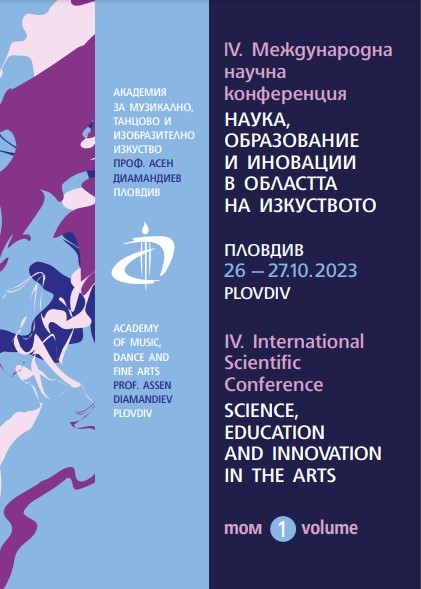Вокални емисии при дирижиране на хор, църковна музика, художествено образование, ритмика и джаз във факултет IV на музикалната академия в Гданск
Voice emission at faculty iv of choral conducting, church music, arts education, rhythmics and jazz at the academy of music in Gdańsk
Author(s): Liliana GórskaSubject(s): Theatre, Dance, Performing Arts, Fine Arts / Performing Arts, Music
Published by: Академия за музикално, танцово и изобразително изкуство „Проф. Асен Диамандиев“ – Пловдив
Keywords: Vocal emission; vocal training; vocal technique
Summary/Abstract: The human voice is an extraordinary musical instrument, one of a kind. Fascinatingly, despite the fact that there are over 7 billion people in the world, each voice has a different colour, timbre, volume, an individual and unique sound. In the past, Italian, German, or English schools of singing differed significantly from each other, whereas, in contemporary times we can speak of many common denominators and the so-called European school of singing, or even worldwide trends in shaping the sound of the voice and its aesthetic qualities. Choral conductors, our students, face a challenging task. During the three years of the Bachelor‘s degree and then the two years of the Master‘s degree, they have to develop the ability to use not only their own voice, but also to be able to distinguish and conduct the voices of others – their choir members. The choral parts in these works require a wide vocal range, and consequently great vocal skills are needed to meet these needs. It is the task of the vocal pedagogues and instructors to expand the students’ voice scales as quickly as possible, which is a major challenge, as some of the students have never sung before. The teaching of correct vocal emission, especially for beginners, is based on Niccola Vaccai‘s exercises „Metodo pratico de canto“ – „Practical Methos of Italian Singing“, written by the Italian composer and vocal teacher, as well as Giuseppe Concone‘s „50 lezioni do canto“, Op. 9 – „50 Vocal Exercises“. These exercises allow the student to gradually develop their vocal technique and consolidate it as they progress through increasingly complex exercises. During the course of vocal education, Balthazar Lütgen‘s vocalizations, which develop the flexibility and fluency of the voice, also remain very useful.
Journal: Международна научна конференция Наука, образование и иновации в областта на изкуството
- Issue Year: 4/2023
- Issue No: 1
- Page Range: 43-49
- Page Count: 7
- Language: English

